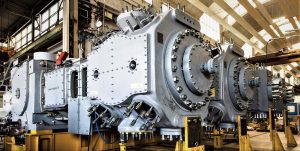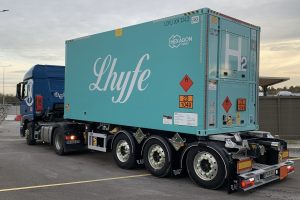The green hydrogen produced in the electrolysis plant will power a new, fully integrated, digitalized and cycle-oriented steel plant in Boden, northern Sweden. Operations are planned to start at the end of 2025, with a scheduled ramp up in 2026. In the initial phase, the site will produce 2.5 million tons of green steel, which is planned to increase to around 5 million tons by 2030.
“This electrolyzer agreement indicates a change in market dynamics and is also a proof of our new business model for reservation of production capacity,” said Dr. Werner Ponikwar, CEO of thyssenkrupp nucera. “For customers where time-to-market is critical, ensuring access to production capacity of leading electrolyzer technology becomes essential. With this bold investment, H2 Green Steel has shown a strong commitment to their timeline to decarbonize the steel industry and we look forward to working with them.”
The hydrogen will be consumed on-site in a direct reduction process, reducing iron ore to sponge iron, enabling production of green steel. The electrolyzer units will be crucial to maximize the operational and economic benefits of the hydrogen in the steel mill, which also forms the foundation for new patented intellectual property assets.
“The electrolysis plant in Boden will be many times bigger than most existing electrolyzer plants today,” said Maria Persson Gulda, Chief Technology Officer of H2 Green Steel. “Combining our own strong technical expertise with that of a proven high-performance and high-efficiency electrolyzer like thyssenkrupp nucera’s gives us a solid head start in the growing green hydrogen economy, which we will use to transform heavy industry with its difficult-to-degrade process emissions. We’re starting with steel in Boden, Sweden, but that’s just the beginning.”






